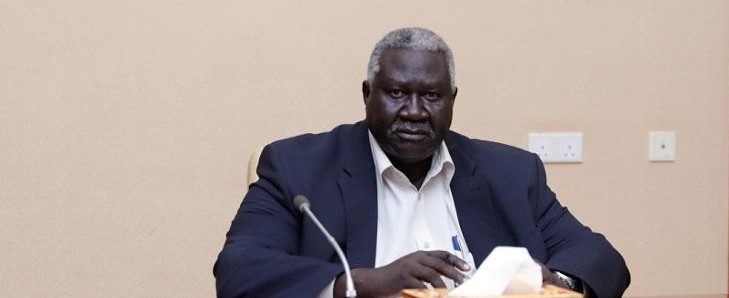A leading member of Sudan’s military junta, General Malik Agar, has warned of the danger of Sudan’s collapse to the region and Africa.
Addressing a workshop on combating terrorism held in Port Sudan on Wednesday, Agar, who is the deputy head of the Transitional Sovereignty Council in Port Sudan, said he was aware of the harms the collapse of Sudan could cause.
“The divisions that are occurring are not beneficial to Sudan and are not beneficial to the region and the world,” he said
“I say to the brothers in the security services and the Sudanese, let us preserve the unity of Sudan.”
He said the steps towards Sudan’s unity required courage from the politicians and all Sudanese.
Sudanese Justice Minister Muawiyah Mohammed Khair, accused the paramilitary Rapid Support Forces (RSF) of committing terrorist acts against civilians.
“This is a clear violation of international laws that protect civilians,” asserted Khair.
The Sudanese minister called on the international community and the organizations working in the field of human rights to condemn the massive terrorist acts committed by RSF against civilians.
The workshop that brought together a wide range of participants, was organized by the Sudanese National Authority for Combating Terrorism. It aimed at combating terrorist financing, border control, and enhancing the community policing approach to combating terrorism.
The war in Sudan broke out on April 15, 2023, occasioned by a power struggle between the two main factions of the military regime. On one side are the Sudanese Armed Forces (SAF), who remain broadly loyal to Gen Abdel Fattah al-Burhan, the country’s de facto ruler. The second faction are the Rapid Support Forces (RSF), a collection of militia, commanded by former warlord Gen Mohamed Hamdan Dagalo, also known as Hemedti.
Both sides appear to have the weaponry and external support to continue fighting for more than a year, making the war particularly dangerous, according to an analysis by the International Crisis Group (ICG).




